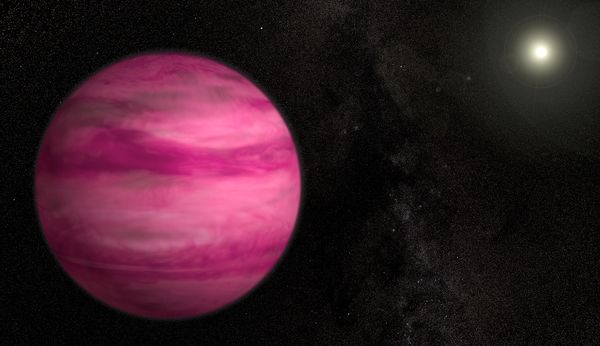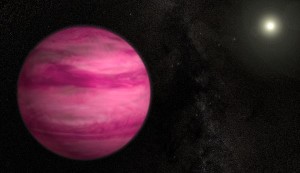Weekly Science Picks


What a week in the world of science! Let’s dive right in!
I’m currently re-reading the Ultimate ‘ Guide by Douglas Adams. This next story got me to thinking of custom designed planet building. What a lovely shade of pink!
Newly Discovered Pink Exoplanet on the Lighter Side by Jane J. Lee
In a new study announcing the magenta gas giant, researchers were able to directly image this exoplanet using the Subaru telescope on Hawaii. The color of this blushing body indicates it has less cloud cover than other observed exoplanets, meaning researchers can peer even deeper into its atmosphere to divine its components.
Anyone feeling hungry and a wee bit adventurous?
World’s first lab-grown burger is eaten in London by BBC News
The professor said the meat was made up of tens of billions of lab-grown cells. Asked when lab-grown burgers would reach the market, he said: “I think it will take a while. This is just to show we can do it.”
This next story highlights a growing global problem… teaching and STEM.
Science and maths teacher shortage may loom for England by Judith Burns
The government’s new School Direct scheme is recruiting too few trainee teachers in key subjects, says Oxford Brookes university’s Prof John Howson.
There is a mystery disease attacking the bottlenose dolphin population. It won’t be easy to pinpoint the source, but let’s hope some real progress is made soon.
Dolphin Deaths Off East Coast Worry Federal Officials by Michael Wines
Federal wildlife officials raised a formal alarm on Thursday over the deaths of scores of bottlenose dolphins in waters off the east coast, saying that a fast-spreading infection could be attacking dolphin populations from New York to Virginia.
Another fish tale… though this one may have leave a bad taste in the mouth with some viewers and readers.
Shark weak: the Discovery Channel’s famous week is sinking to tabloid tactics by Alan Yuhas
The Discovery Channel, which bills itself as the “#1 nonfiction media company” opened this year’s Shark Week with a fictional “documentary”.
I think this last “story” is a perfect capstone to this edition of Weekly Science Picks. Discovering new planets, investigating unusual mortality events in an animal population, even creating edible meat from stem cells; that’s all real science. And we need teachers to teach the subjects of maths and science to youngsters and to dispel these myths and sensationalism that media companies are hyping with outrageous headlines. It’s not just Discovery; the History Channel and National Geographic have departed from their traditional core programming, presumably to keep pace in the ratings race. And if that’s what viewers want more of, entertainment, well that’s one thing. But science should not be compromised at any cost.
Burnes K (2013-08-11 10:05:14). Weekly Science Picks . Australian Science. Retrieved: Feb 22, 2026, from https://ozscience.com/news/weekly-science-picks-41/
 Follow
Follow